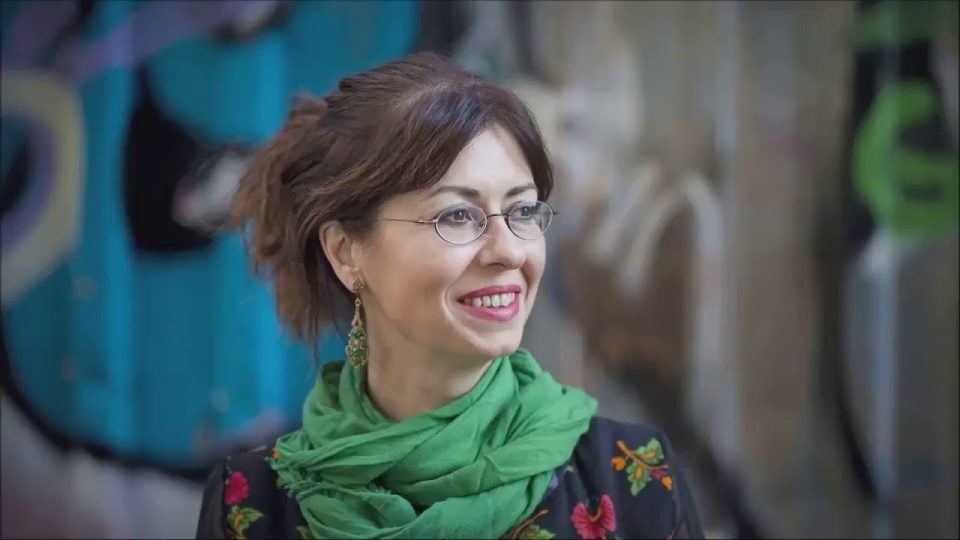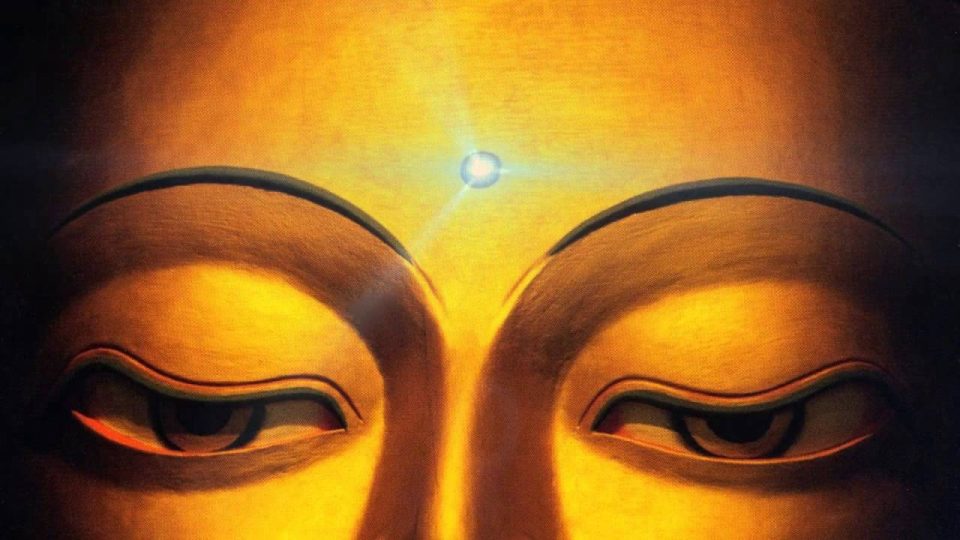Years ago I wrote an article entitled “The Three Gods of Man”. This article garnered a lot of backlash because of the supremely irritating “implication” in its title. Because we give the grade of the article from the title before we read the article. There are many of us who do not bother to read but believe that his interpretation is worth reading.
In summary, that article: due to the socio-psychological tendencies of the human being,
1) Ancestors or past majority
2) The current majority
3) Authority
I based this heavy accusation on a verse of the Qur’an that states that people take priests and rabbis as lords. In fact, at the end of the article, I stated that the most troublesome false God of man is his own self, but I will discuss this subject later. Although it has been very demanding since then, I could not gather the mind to write about this issue.
Today, I will touch on a difficult subject that is closely related to this subject, but covers a wider area in terms of God and faith.
As you think about what God is, it will not be difficult to realize that there are actually as many Gods as there are people on earth. Almost everyone acquires a vision of God within himself, under the guidance of external factors in one way or another, and internal factors in other respects. Although common external factors such as religious texts increase the likelihood that these Gods will resemble each other, their tawhid is not an easy task as long as God is a superhuman mystery. Even when we think that everyone has a different perception capacity and experiential obligations, even if God comes out and reveals what he is, this tawhid is difficult to achieve and even impossible unless God himself recreates all perceptions and rewrites them in the human mind in his own way.
In order to better understand this judgment, it is necessary to take a look at what people (not only Muslims) call God. To make a rough and average definition, we can say that man calls the “transcendent”, the things he cannot afford, the thing that he can’t do, the God. Even though man represents this God to an object (such as celestial bodies, statues or any animal figure), what is transcendent is not this representation, but what is represented. It is also clearly stated in the Qur’an that people do not actually worship statues, but what they represent.
From this point of view, the story of Abraham in the Qur’an is extremely interesting for our subject. Abraham – probably due to the influence of the various sects into which he entered – first acquires a star as God. When the star sets, the Moon likes it and takes it as God. When it disappears, the sun, which is the biggest and brightest of all, becomes God. Finally, when the sun sets, he attains tawhid by saying, “I do not like those who rise and set like this, I turned my face to the One who created them, the earth and the heavens.”
In all these stages, while Abraham turns to another God and/or the idea of God, he actually “denies” his previous belief.
Well, is the perception of God that people create in their minds something that can change and develop like this?
Those who are not aware of the sects of creed may think that there is only one God in Islam and that they are on the right side even if they do not know what it is. I do not condemn this situation. On the contrary, in this article, I question whether human perception of God can have such a stage, and whether it is “reprehensible” to move to another level of understanding and understanding each time.
If we ignore for a moment the contribution that people (now, for example, Muslims) make to the perception of God in their own consciousness, there will be many perceptions of God within the same religion that vary according to the sect of creed, time and place. Is it a crime to believe in one of these different Gods/perceptions of God?
In order to be able to talk about a crime at this stage, the person must be deliberately doing something that is “not right” in a matter that he can afford. So, is God -according to the belief of those who believe in his existence- really something that can be understood by man? Muslims – despite the existence of some unfavorable claims and the seriousness of them – have a belief in a God who is free from time and space, independent of the worlds, invisible, unlike anything, all-powerful and all-knowing. Despite the differences between the sects of creed and the existence of some expressions that are clearly present in the Qur’an, which are allegedly simplified as metaphors or artistic expressions, he has more or less such an imagination of God.
In our time, along with the tendencies of “turning towards the Qur’an”, we have seen that people with this tendency have found differences between the conception of God in traditional belief and the conception of God in the Qur’an, and they have changed their beliefs in this direction and moved to a new stage of belief. So, even within the same field of religion, I think that the changes in the believers’ conceptions of God are as meaningful as Abraham’s journey of faith. As a result, those who said, “The Qur’an is enough for us,” changed the God image that had been shaped in their previous beliefs, denying the “previous God image” and, in bold words, their “previous God”. Since, according to the Qur’an, the act of purifying God from qualities and qualifications that do not belong to Him and do not suit Him is called “tanzih”, we can say that this attitude is “God’s transcendence”.
So, what is the limit of this “tanzih” and “denial” of previous conceptions? Is there a limit to this activity?
If one is in a quest like Abraham, it seems a bit difficult to draw a boundary to this search and expect everyone to be an Abraham. Well, the Qur’an advises not to be an Abraham at this stage, but to follow Abraham’s way.
So, how will a person who seeks his God and tries to comprehend know where to stand, whether he is going forward or backward? What will happen if he reaches a limitless place on this journey? What if one day he denied a thousand ideas of God, but eventually ended up on an unruly, very unproductive, very shallow shore and got stuck for good?
Deism; Is it a final destination for such an adventure of denial? Or, beyond that, does agnosticism take a shortcut, believing that even the existence or non-existence of God is unknowable?
Finally, the real “bomb question”, so to speak, is it possible for all of these and other things to be “relatively” correct?
In this last possibility, all God’s visions that you deny or that you are new to are one. If two and two may not be four and opposites can be found simultaneously in a human and a supernatural realm, it may not be unreasonable to see God as a final destination and integration point of everything possible, instead of limiting God with various conceptions. Maybe what is valuable is not to “find” or to comprehend with the Self, but to seek. If what is valuable is seeking and a constant movement in the imagination within, it may not be of practical importance where the result or where you last stopped, as all paths will lead to Him. To what extent it is possible for something stuck in two-dimensional space, for example on a notebook page, to see and comprehend the third dimension, perhaps the knowledge of the “God level” (Ilmi Ledün) is like this, and of course it is in a much higher dimension, and is exactly close (knowing by seeing) or it may not be possible to realize Hakk-ul-yakîn (as a foundation of every state) one step further. Or, all existing realizations may be a ray of light from that “Hakk-ul-Yaqin”.
I am aware that this point of view contradicts the things we know and are familiar with, and perhaps somewhat similar to the ancient belief of the Anatolian lands called the “way of existence, unity”. But I’m not brave enough to claim that all the ancients were wrong, outright and in advance. I do not have such fears, perhaps because I like to listen to everything that is said and said about God.
Man cannot deal with opposites and coexist simultaneously. This is a result of the nature and deterministic mindset in which it evolved. In order to survive, our brains have evolved in a deterministic (causalistic) structure, and this structure has allowed us to survive by calculating and predicting probabilities. We are looking for God with our brains that have come out of such an evolution, and we tend to define it by squeezing it to the limits of our own mental world. (Or maybe it has no place now, but we tend to fill an existential void with something called God.)
If there is a possibility that there is something outside of the existence that we are in or that our mind can comprehend, it is necessary not to speak by heart and certainty about these other dimensions, and not to fall into an obsession that those dimensions must conform to the assumed truths of our own dimension. This necessitates believing that even if our mind and understanding are not enough, things that seem very extraordinary and even impossible to us can happen out there, somewhere beyond, and to leave this possibility door open. Until a light comes to our dark world, illuminates the unknown, makes it known.
To do this, to be able to do this, is much more difficult than writing these lines. How easy it is to deny it immediately and in advance. That is, until he realized the strength of the possibility that what he now denies may be true truth and what he accepts as fact may be sheer nonsense…
At a later stage, when you think of another plane where things that seem opposite to each other here and now can be all right or all wrong, maybe a thousand Gods have entered their imagination, denied the previous one at each exit, not conditioned to what to think, according to you, it is unproductive for the here and now. and you find yourself on a shore that is too shallow for here and now for you.
Besides, you can be such that you can’t verify or falsify anyone, even if you can, you see it beyond your limits. That’s when you can begin to realize the unity of opposites. This is not a confusion, perhaps; It is an immaculate field of vision, free of things that hinder vision.
Maybe now you can go ashore and contemplate the “great property of the heavens and earth” -without prejudice and interpretation…
Ali Aksoy – 20.10.2019
Note: For a continuation of this article, you can take a look at my article titled “Circle of God”.
(Translated with google translate)
For the original article, see:
İnsanın kaç Tanrısı olabilir ? Tanrı inkarcılığına farklı bir bakış – Ali Aksoy












